RecombiMAb™
New: Recombinant Monoclonal Antibodies from Bio X Cell
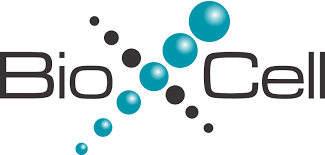 Bio X Cell RecombiMAb™ monoclonal antibodies are recombinant antibodies with the exact same antigen binding variable domains as the traditional antibodies that they are derived from. The epitope to which the RecombiMAb™ antibody binds is identical to that of the matching traditionally produced clone. This is accomplished by sequencing and cloning the antibody-coding genes into high-yield expression vectors which are then expressed in mammalian cells to generate the recombinant antibody.
Bio X Cell RecombiMAb™ monoclonal antibodies are recombinant antibodies with the exact same antigen binding variable domains as the traditional antibodies that they are derived from. The epitope to which the RecombiMAb™ antibody binds is identical to that of the matching traditionally produced clone. This is accomplished by sequencing and cloning the antibody-coding genes into high-yield expression vectors which are then expressed in mammalian cells to generate the recombinant antibody.
Advantages of recombinant versus traditional monoclonal antibodies
Traditional monoclonal antibodies created using hybridoma technology are produced by fusing a B cell from an immunized animal with an immortalized myeloma cell. While this process produces highly specific and consistent monoclonal antibodies it does have some drawbacks. Hybridoma cells are susceptible to genetic drift, gene loss and gene mutations which can result in slight changes in binding specificity and antibody affinity over time. While Bio X Cell’s optimized antibody manufacturing process utilizes multiple measures to avoid hybridoma genetic drift and lot to lot variability as much as is achievable, some level is unavoidable. Further, since traditional hybridomas are created using immunized animals (typically rats or hamsters) the species of the antibody cannot be altered. This can be problematic when the species of the antibody does not match the species of the experimental animal. For example, injecting rat IgG into a mouse repeatedly over the time course of an experiment has the potential to induce an immune response against the injected antibody in the mouse leading to reduced antibody effectiveness and/or a hypersensitivity reaction. Recombinant antibodies do not suffer from these drawbacks.
RecombiMAb™ Antibodies Feature
- Formulated for in vivo Applications RecombiMAb™ antibodies are offered with the same purity and in vivo formulations that Bio X Cell is known for: ultra-pure and free of preservatives, stabilizers, and carrier proteins
- Consistent and Highly Reproducible Data RecombiMAb™ antibodies are derived from a defined DNA and amino acid sequence encoding only one heavy and one light chain, thus not susceptible to genetic drift, gene loss or gene mutations.
- Species Matching Chimerization RecombiMAb™ antibodies are provided as chimeric antibodies with mouse or human IgG constant regions for improved in vivo activity and reduced immunogenicity in (humanized) mouse models.
- Exceptional Purity Each lot is QC tested for purity using SDS-PAGE and are preservative, stabilizer, and carrier protein-free.
- Binding Validation Each lot of RecombiMAb™ product is validated for antigen binding by immunoblot.
- Ultra-low Endotoxin Levels The level of endotoxin is QC tested for each lot. Our RecombiMAb™ products are ≤ 1EU/mg.
- Pathogen Free Each lot of RecombiMAb™ product is screened for an exhaustive panel of murine pathogens. The results are detailed on product-specific datasheets.
- Low Protein Aggregation Each lot of RecombiMAb™ product is QC tested for aggregate level and guaranteed to be below 5% of the total protein.
- Available Fc Domain Silencing Select RecombiMAb™ antibodies are available in multiple Fc silenced versions.
| Art. Nr. | Product Description | Host | Isotype |
|---|---|---|---|
| BXC-CP151 | Anti-Mouse PD-1 (CD279) (D265A) | Mouse | IgG2a, Κ |
| BXC-CP147 | Human IgG4 (S228P) Isotype Control, Anti-Hen Egg Lysozyme | Human | IgG4, Κ |
| BXC-CP148 | Human IgG4 S228P L235E P329G (SPLEPG) Isotype Control, Anti-Hen Egg Lysozyme | Human | IgG4 |
| BXC-CP149 | Human IgG1 (LALA-PG) Isotype Control, Anti-Hen Egg Lysozyme | Human | IgG1 |
| BXC-CP150 | Mouse IgG2a (D265A) Isotype Control, Anti-Hen Egg Lysozyme | Mouse | IgG2a |
07.04.2022
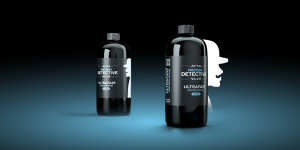
New: Protein Detecti...
Your sidekick for protein staining
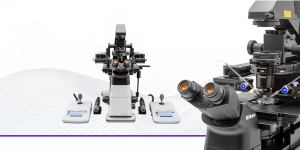
Cell Manipulation
MDR Approval for Medical Devices
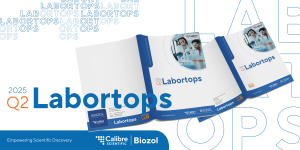
Labortops #2
Super Sale: up to 88% off labware
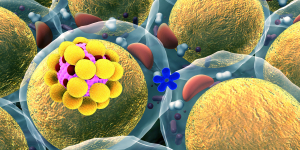
Obesity and Metaboli...
Research Reagents from Rockland, GeneTex and more
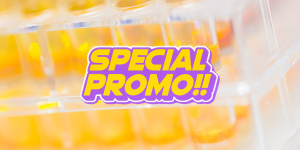
Spring Promo
Up to 30 % off Antibodies and ELISA kits

